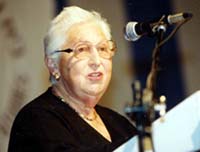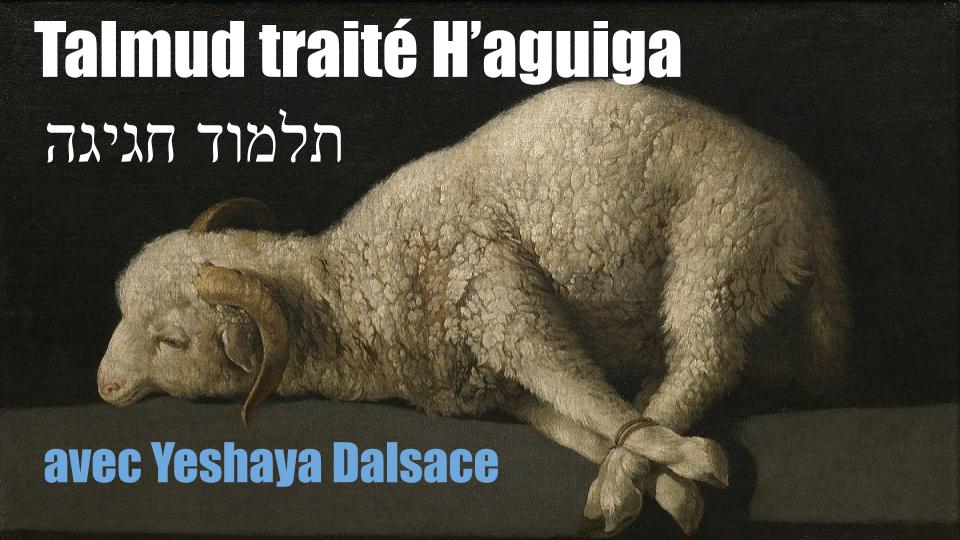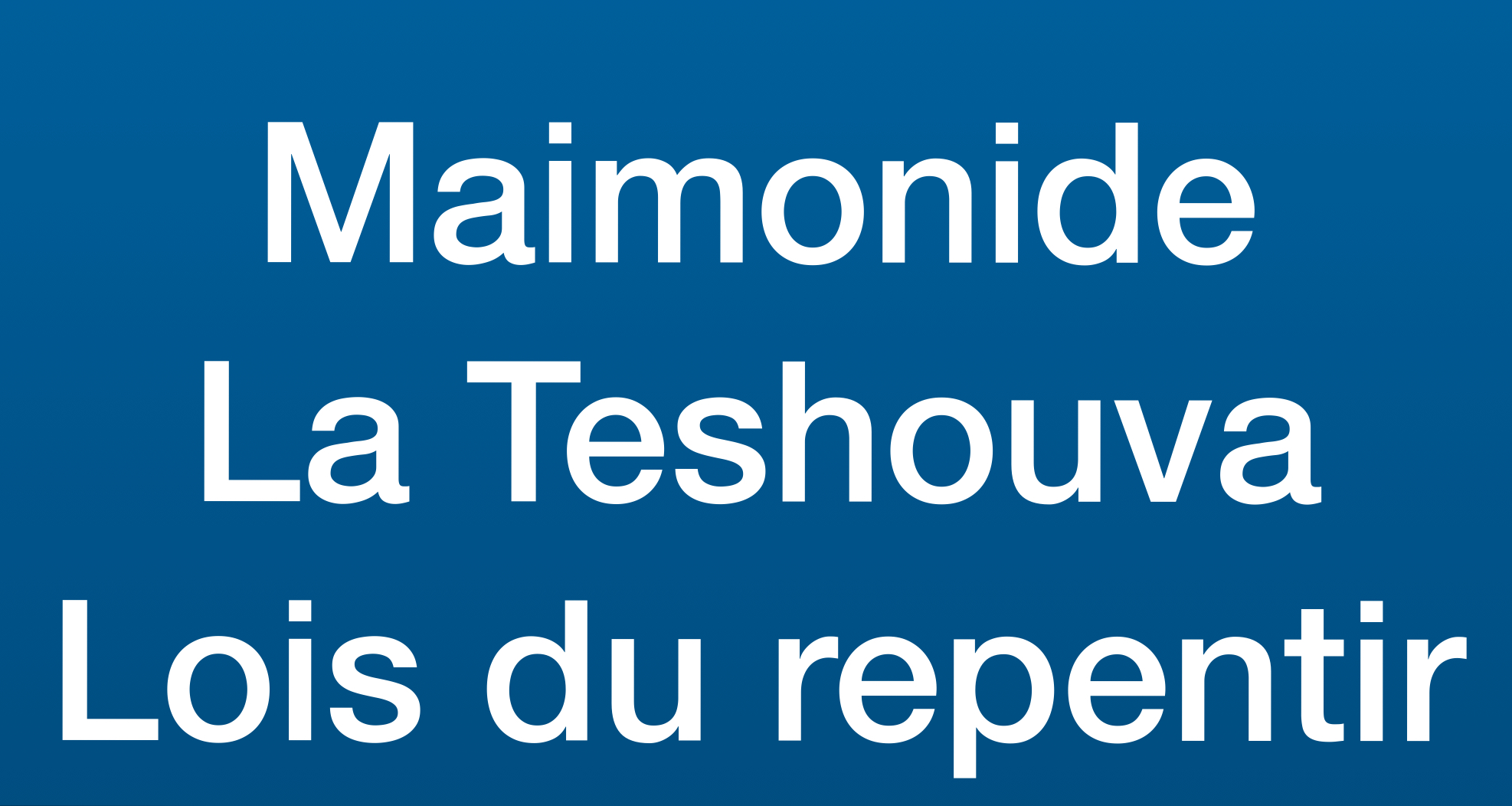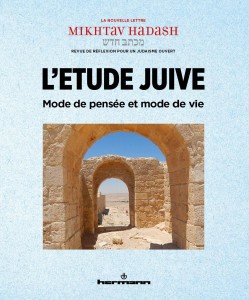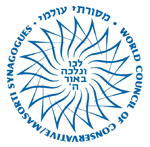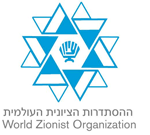Le Prix-Israël couronnant l‘oeuvre exemplaire de toute une vie et un apport particulier à la société et à l’Etat d’Israël, vient d’être attribué au Professeur Alice SHALVI universitaire religieuse, très en pointe dans la cause féministe en Israël.
Selon les juges, Alice SHALVI a été remarquée tout particulièrement comme « pionnière révolutionnaire et courageuse, dotée d’une grande intégrité d’esprit et d’une vison à long terme » Elle recevra son prix lors des cérémonies du Jour de l’Indépendance d’Israël (Yom HaAtsmaout).
Alice SHALVI dirigea longtemps l’Ecole orthodoxe de Filles Pelech, à Jérusalem, et en fit l’une des premières écoles expérimentales et démocratiques du pays. Elle commença ses activités féministes dans les années 1970, luttant pour les droits des femmes auxquelles leurs maris refusaient d’accorder le divorce. Elle fut aussi l’une des fondatrices du Réseau de Femmes Israéliennes, dont elle assura la présidence depuis sa création en 1984 jusqu’au début de 2007.
Alice SHALVI née en Allemagne en 1926, s’enfuit en Angleterre peu après la prise du pouvoir par les nazis et entreprit des études de Littérature Anglaise à Cambridge. Après avoir immigré en Israël en 1950 elle devint Professeur d’anglais à l’Université Hébraïque de Jérusalem.
Déçue par le peu de progrès en faveur des femmes dans le monde orthodoxe , elle opta dans les années 80 pour le mouvement Massorti . Elle devint même la présidente du campus universitaire Massorti à Jérusalem : le Machon Schechter . Elle ne cessa de militer toute sa vie pour une amélioration de la place de la femme dans le judaïsme et notament le cruel sort des Agunot (femmes en refus de divorce).
Voici un article dans lequel elle analyse la situation de la loi religieuse en Israël.
"Renew our Days as of Old"
Religious fundamentalism and social change in the modern Jewish state
by Alice Shalvi
The old shall be renewed and the new shall be sanctified.
Rabbi Abraham Isaac Kook , Chief Rabbi of Palestine, 1921-35
The development of Jewish law
Judaism is a religion based on the implementation in everyday life of moral and ethical principles, the essence of which is first summarized in the Ten Commandments believed to have been given to the Children of Israel at Mount Sinai by God, acting through his intermediary, Moses. These commandments, formulated as imperatives of commission and prohibition, are supposed to find practical expression through the strict observance of the priestly code of 613 biblical commandments predicated on the Pentateuch, which expand upon and explicate the Decalogue.
The biblical commandments have, in their turn, been further expanded, explicated, interpreted and debated over the past 2,500 years by successive generations of sages , whose decisions and dictates are presented in the Oral Law (halakhah) first codified in the Mishnah by Yehuda Ha-Nasi in the second century CE ; again in the Talmud , which was composed between the second and sixth centuries ; once more by Moses Maimonides in the twelfth century ; and finally in the sixteenth century by Joseph Caro in the Shulkhan Arukh, which is currently considered the principal codificatory receptacle of halakhah.
A study of the codificatory trend in Jewish law reveals the interesting historical phenomenon of a recurring revival of activity at intervals of 100 to 200 years. However, for the past 400 years or so there has appeared no further generally recognized or authoritative code that embraces the entire field of Oral Law. Furthermore, for over 200 years the entire code has ceased to be universally accepted by all members of the Jewish faith (or people, as it may now be more appropriate to refer to them).
This change is primarily due to the "enlightenment" of the late eighteenth century, which increased secularization and weakened traditional Talmud study, and to the emancipation of the Jews which occurred in Europe at about the same time. Between them, these two developments radically changed the face of Jewish society, for with the emancipation occurred an abrogation of Jewish organizational (and, gradually, also judicial) autonomy, which led to the division of that society into traditional and non-traditional elements, as well as religiously observant and secular.
The process of rabbinical reinterpretation continues to the present day, conducted by hundreds—even thousands—of rabbis worldwide, wherever Jewish communities exist. But these rabbis are now sectorized within different "denominations" or "streams" of Judaism and enjoy varying degrees of authority beyond (or even within) their respective affiliations. The major non-Orthodox streams are Reform Judaism, which has almost completely abandoned halakhic authority, and Conservative Judaism, which is based on halakhah, but stresses the importance of its reinterpretation in the light of changing social norms.
Rabbis of the various streams do not necessarily agree with or valorize each other. Indeed, the responsa and edicts of Conservative and Reform rabbis and the practices of their respective adherents are fiercely criticized and rejected by the Orthodox and Ultra-orthodox (haredi ) streams, who question the authenticity and deny the very legitimacy of the newer streams.
Concurrently with the development and reinterpretation of Jewish law, there occurred a development of minag or custom, which, over time, attained a status approaching that of law and is considered by many to be equally binding. In fact, many Jews, whether religiously observant or non-observant, would be hard put to it to identify what is law and what is custom, so much has the latter attained an aura of compulsion. The same is true, though to a somewhat lesser extent, of masoret, tradition, which, however, lacks all the binding elements of both halakhah and minag.
Fundamentalist or "classical" Orthodox tradition
Contemporary Jewish fundamentalism (like religious fundamentalism in general) may be defined as a fidelity, often rigid, to religious tradition, ideology or sacred text and the literal (or extremely strict) interpretation of such text.
The tradition which governs Jewish fundamentalist thought and practice is, above all, androcentric and patriarchal, drawing a clear distinction between male and female, traceable to that found in the opening chapter of Genesis, which, among other things, narrates the creation of humankind : "Male and female created He them."
In this respect, Judaism is no different from other religions. What one legal authority has identified as "a core feature of religious fundamentalism," namely "the vigorous political promotion, and legal reinforcement of gender roles whose explicit intent entails the subordination of women," exists also in Judaism.1
The gender-based distinction finds expression in a wide variety of elements in Jewish theology and religious practice, beginning with the very language both of the biblical text and of the liturgy which developed only much later. In Hebrew, which is a gender-inflected language lacking the neuter form, the deity is masculine as, in the standard liturgy, is the person addressing Him, the "I" of prayer. Thus, for example, the individual who, in the biblical citation which is part of the daily prayer, is bidden to "love the Lord thy God" is male. Even the tenth commandment, in referring to "thy neighbour" posits both a male subject and a male correlative in the neighbourly relationship. Hence the injunction is not to covet one’s neighbour’s "wife," rather than his or her "spouse."
Jewish theology is similarly androcentric. The command which (literally) "embodies" the unique relationship between God and the Jewish people finds physical expression in the circumcision of every male child at the age of eight days. While Jewish prayer, as recited by both men and women, refers to "Thy covenant which Thou hast sealed in our flesh," Jewish women (perhaps fortunately, given the horrors of female genital mutilation) do not bear that seal.2
The covenant was initially entered into with Abraham and reconfirmed with the successive patriarchs, Isaac and Jacob. Though Jacob had a daughter, Dinah, the tribes of Israel derived only from his twelve sons. Significantly, the only part of the Genesis narrative in which Dinah figures as a protagonist deals with her abduction by Hamor, son of Shehem, and the subsequent bloody avenging of the stain on the family honour by her brothers, Shimon and Levi. Throughout the entire episode Dinah is objectified, silent, her voice unheard and unrecorded. The verb which recurs most frequently with reference to her is "to take," an action performed on her by both her abductors and her brothers.
Traditional Jewish ritual is also androcentric. The two most significant events in the life of a Jewish male are his circumcision and his bar-mitzva—the "coming of age" on his thirteenth birthday—which makes him responsible for his own actions, imposes on him the practice of the commandments and makes him eligible for inclusion in the quorum of ten adult males, which is a prerequisite both for the recitation of some of Judaism’s most central and sacred prayers (including the mourners’ Kaddish ) and for the reading of the Law from a Torah scroll, which occurs on Mondays, Thursdays and the Sabbath.
Women are not eligible for inclusion in the prayer quorum. They are also exempt from fulfilling some of the commandments, most specifically those which are time-bound (that is, have to be performed at specific times of the day or the year). In this respect, women are categorized in Jewish law together with male minors and Canaanite slaves—a significant grouping !
Not only have Jewish women not enjoyed equal status in synagogue and other ritual ; they have also been denied the type and degree of Jewish education traditionally deemed essential for Jewish males, whose ideal occupation, in the opinion of traditionalists, is the study of the Law (that is, the Talmud ). Forbidden entry into the house of study (Beit Midrash ) and the Yeshiva (Talmudic seminary), Jewish women (with only a very few exceptions) have until recently lacked the knowledge required in order to be actively involved in the interpretation of halakhah. Needless to say, this means that they cannot be recognized or ordained as rabbinical authorities.
Women’s traditional role and social status
The traditional roles of the Jewish woman, once again predicated on the earliest chapters of Genesis, are those of wife ("helpmate"), mother and home-maker, roles performed in the private, domestic domain that is itself considered a bastion of Jewish life and practice. The family and the domestic venue exemplify ideals to which Jewish women are to aspire.
In legal terms, a Jewish woman is subject to the authority of a male relative, first as daughter and later as wife. Indeed, the Jewish marriage ceremony is an act of symbolic purchase (though no money needs to change hands) in which the bride becomes her husband’s property, while he undertakes to provide for all her needs, including sexual satisfaction. The Hebrew word for "husband" is "owner." A woman can be released from marriage only if her husband, of his free will and being of sound mind, places in her willingly outstretched hands a get or bill of divorcement. There have never been, nor are there at present, any women on the three-member panels of rabbinical judges which authorize (but cannot finalize) the granting of a divorce. In Israel, the rabbinical courts have sole jurisdiction over personal law and there is no option of civil marriage or civil divorce for any citizen, irrespective of the religion of which they are officially registered as members.3
While excluded from any role in public prayer—an exclusion which, in Orthodox circles, has been extended to all public roles in society—Jewish adult women are obligated to three commandments which are incumbent only upon them, all of which are predicated on their being married homemakers. These are, respectively, ner, the kindling of lights which ushers in the Sabbath and the Holy days ; niddah, the physical apartness or separation between husband and wife during and immediately after menstruation—a separation which must continue until there is no further sign of menstrual blood and the woman has purified herself by immersion in a ritual bath (mikveh ) ; and halah, the setting aside and burning of a portion of the bread dough in commemoration of the Temple sacrificial rites.
The overriding quality desired in the traditional Jewish woman—and the one most frequently adduced by religious authorities as a justification for her exclusion from the public arena—is modesty. Woman’s voice is decried by fundamentalists as an "abomination," as is woman’s hair, while other parts of her body are considered inducive to lascivious thoughts in men. Thus Orthodoxy demands that married women cover their hair (or, in some extremely fundamentalist communities, shave their heads upon marriage prior to covering their baldness with a kerchief) ; that unmarried women and girls keep their hair neatly braided and never "dishevelled" (the latter being a sign of wantonness and even prostitution) ; that all females wear long-sleeved garments and stockings at all seasons and that their clothing never reveal the contours of their bodies. There is, however, no demand to conceal the face, though cosmetics are frowned upon.
While Judaism has no practice comparable to purdah (the seclusion of Muslim and Hindu Indian women from public observation), in Orthodox circles women are customarily expected to stay away from the company of men, even when the latter congregate in a private home. At all times they are expected to speak softly, avoid boisterous behaviour of any kind, and above all never to raise their voices in song except when there is no possibility whatever of their being heard by man. According to halakhah a man and woman (other than a married couple) may not be alone together in a closed room. Marriages are frequently arranged by the parents or acquaintances of the couple ; courtship is brief and there are (albeit increasingly infrequent) cases in which the bride and groom first meet only days before the wedding and are never alone together until after the ceremony. At Orthodox weddings, men and women do not mingle, there is no mixed dancing and, when space allows, the sexes celebrate in separate rooms. Ultra-orthodox men will not shake hands with women, nor sit beside them, even in public vehicles.
In the synagogue, Orthodox women are concealed behind a mehizah, a dividing screen designed to make them invisible to the eyes of male worshippers. Frequently, they are relegated to an upper room or gallery where, in many cases, they are not only not seen, but are also prevented from seeing (or, in some cases, even from hearing) what is going on in the course of the service.
The traditional role of materfamilias which Jewish women are expected to fill has in recent years, especially in Israel, become a kind of "maternal imperative," the motto of which seems to be "the more, the better." Ultraorthodox women pride themselves on bearing as many as fourteen or fifteen children ; in this they are comparable to earlier generations of women, a major difference being that now the children survive, creating an enormous burden in terms of time and money.
Fundamentalist rabbis forbid the use of contraception and cessation of pregnancy, sometimes even in cases where medical opinion has indicated that pregnancy might prove physically incapacitating or even fatal to the mother. Recently the Israeli media reported cases in which such rabbis provided fertility pills to childless women or to those who were having problems in becoming pregnant once more after having borne "too few" children. Paradoxically, the rabbinical edict in such cases goes counter to halakhah, which permits and even prescribes abortion if the mother’s life is at risk and which at all times, even during labour or delivery, gives the mother’s life precedence over that of the unborn child.
The trauma of the Holocaust and the loss of six million Jewish lives has cast such a profound shadow over contemporary Jewish society that it is comparatively easy to induce guilt in any woman who fails to do her utmost to replace the lost generation. In Israel, the threat of being outnumbered by the hostile surrounding countries or by the indigenous Arab population provides another impetus. Needless to say, multiple births and the consequent duties of mothering also serve to keep women securely confined to their households.
Despite this confinement, Orthodox—and particularly Ultra-orthodox women continue the long-established tradition of women being income-earners, often even the primary income-earners in the family, in order to enable their husbands to engage in full-time Torah study—an occupation which is considered the fulfilment of the most important of all commandments, since it teaches one to obey the other commandments. Whereas in the past it was often difficult to combine or reconcile income-earning with the demands of modesty and separation of the sexes, modern technology has facilitated such a combination ; women can and do use telephones, facsimile machines, computers and other electronic devices in order to work from home. Not only can working hours then be flexible and consistent with the demands of family, but—paradoxically—the degree of technical knowledge and skills required has resulted in women being far better educated than their menfolk, whose studies are still confined primarily, even solely, to ancient texts whose contemporary relevance is questionable. Nevertheless, these women would be the first to maintain that what they are doing is as naught in terms of spiritual or religious values compared to what their husbands are doing. Their pride is precisely in that they are enabling that study to take place undisturbed and uninterrupted by material concerns and the exigencies of everyday family responsibilities.
Winds of change
Enlightenment, emancipation, the steady ascendancy of the non-Orthodox movements, the "liberation" of secular women (both Jewish and non-Jewish)—all of these, together with other aspects of modernity, have had a dual impact on Jewish orthopraxis and fundamentalism. On the one hand, modernity has weakened the Orthodox hold over the Jewish community. On the other, it has aroused a (not unexpected) absolutist intensification of the practices that distinguish the Orthodox, Ultra-orthodox and fundamentalist sectors from the rest of society, a reaction which expresses itself in ever more severe attacks on the various phenomena that characterize modernity.
Zionism and the establishment of an autonomous "Jewish state" in 1948 constituted the major challenge to Orthodoxy in the twentieth century, engendering (perhaps inevitable) conflicts between religious tradition and modernity, between the determination to establish a democratic mode of government that promised equality of opportunity, reward and status to all its citizens, "irrespective of race, creed or sex" (in the words of the Declaration of Independence), and the dictates of traditional Judaism.
The majority of the pioneers who came from Europe to reclaim the land of Israel were secularists who had quite deliberately shaken off the shackles of religion, together with other aspects of what they considered to be ghettoized, effete qualities of Diaspora life. Similarly, secular Jews today constitute the majority of Israeli citizens. However, there has always been—and remains—an overriding desire to maintain certain basic Jewish principles and practices which are considered fundamental to ensuring the Jewishness of the state—a state in which 20 per cent of the citizens are non-Jewish Muslim or Christian Arabs. Thus, Saturday is the official Sabbath, or day of rest, and the Jewish calendar determines public holidays ; Hebrew is the official language—revived as a living language after almost 2,000 years of serving as the language only of prayer and study ; and observance of kashrut (dietary laws) marks all public institutions. Yet all this did not suffice for the Orthodox and, more especially, the Ultraorthodox sectors of Israeli society, many of whom quite clearly favour the establishment of a quasi-theocracy in which Jewish law would take precedence over—or would at least infuse—legislation passed by a democratically elected parliament.
In order to exert maximal influence on the legislative process, various sectors within the religious community in Israel established political parties, which over time have significantly increased their representation in the Knesset (Israel’s parliament), and exploited their growing electoral power by bringing pressure to bear on successive governments in order both to impede secularization and to increase the financial and material benefits extended to the Orthodox population.
The political platforms of these parties clearly aim at ensuring that Orthodox halakhic principles maximally determine such critical issues as "Who is a Jew ?," 4 Sabbath and Holy day observance, and personal status (in particular, marriage and divorce). Since 1977, the fundamentalist religious parties have gained so much power that whichever majority party seeks to set up a coalition government is left with little option but to surrender to at least some of the demands made by the religious parties on whose support it depends.
Perhaps the most remarkable increase in power has accrued to Shas [Please see here for several introductory papers on the Shas Party—web editor], the most recently founded of the Orthodox parties, which combines religion and ethnicity, claiming to represent the socio-economically deprived sector of Israeli society, those who immigrated from the Arab states in the early 1950s and who are still in many respects discriminated against.
Like fundamentalist groups elsewhere (for example, the Hamas under the Palestinian Authority), Shas has won adherents by developing social and educational services which ease the burden of the poor, and they have done so by extorting subsidies and funding in return for their support of successive governments, irrespective of the political ideology of the ruling party.
Shas’s educational institutions are sex-segregated from early childhood on and their curriculum is extremely narrow, focusing on religious studies that are taught from a strictly fundamentalist, non-critical point of view. Nevertheless, increasing numbers of moderately religious or even wholly non-observant families are availing themselves of these kindergartens and schools because they alone provide hot lunches, longer school days, and busing. Since poorer parents also tend to have more children, the proportion of young people attending Shas schools is constantly growing, with subsequent intellectually detrimental effects.
What is probably more damaging to the democratic mode of government to which Israel aspires is the fact that members of the Knesset from the religious parties never make a political decision without first consulting their respective "spiritual leaders," rabbis who are, of course, not democratically elected. These leaders, it should be stated, are clearly guided by expediency and non-spiritual considerations.
Probably the most significant indication of religious control in Israel is the fact that there is no true separation of state and religion such as exists in most democratic regimes. The Knesset legislates some aspects of religious life and practice, such as Sabbath working hours, while supervision of the implementation of such legislation is in the hands of a state-appointed, state-salaried Chief Rabbinate, a Chief Rabbinical Council, local and regional religious councils and rabbinical courts, all of whose members are Orthodox males. Rabbinical courts have sole jurisdiction over personal status. Only state-recognized rabbis may officiate at weddings, if the marriage is to be officially recognized by the Ministry of the Interior (which itself has long been in the hands of representatives of one or other of the religious parties). None of the non-Orthodox streams of Judaism enjoys official status ; a marriage service conducted by one of their rabbis must have an official representative of the local rabbinical council present to "legitimize" it, or it will not be recognized as valid. While non-Orthodox conversions are similarly not recognized, a recent legislative amendment which implemented the recommendations of a government-appointed commission on this vexed topic brought about the establishment of a multi-denominational School for Conversion. Those wishing to convert may study with a rabbi of their choice—Orthodox, Conservative or Reform—but the subsequent examination, as well as the actual rabbinical court of conversion, are still exclusively Orthodox.
Lack of clarity regarding the power and the right of the state to coerce citizens into personal observance of halakhah, even when the latter is expressed in civil law, combines with individual and collective resistance to coercion to generate political and even physical opposition to the strict implementation of halakhically based laws.
Thus there has been strife regarding Sabbath shopping and operation of public places of entertainment on official days of rest. Hotels have had their Kashrut certification cancelled because they displayed a Christmas tree for the benefit of their Christian guests or held New Year’s Eve celebrations in defiance of the fact that the Jewish New Year begins on Rosh Ha-Shanah, which usually falls in September or October. There is no public transport on the Sabbath, but no prohibition on private traffic. However, certain roads in districts heavily populated by Orthodox Jews are closed to all traffic for twenty-five hours, from sundown on Friday. Disputes arise when these roads are main arteries, particularly when they lead to essential services, such as hospitals. On such roads there have been incidents of stoning of cars and other acts of violence perpetrated by the local residents, who resent the disturbance of their day of rest. Ironically, the throwing of stones is an act forbidden on the Sabbath, but this has not acted as a deterrent.
Far more wide-ranging an impact results from the Orthodox monopoly over personal status—a monopoly which ensures that there is neither freedom of, nor freedom from, religion in what purports to be a modern, democratic, pluralist state. There is neither civil marriage nor civil divorce in Israel.
Rabbinical law regarding marriage and divorce has already been discussed. On the whole, that law is in essence compassionate even though it is not egalitarian. Thus although a divorce becomes absolute only through an act voluntarily performed by both spouses, there are halakhically approved methods by which a recalcitrant husband (that is, one who refuses to grant the get) may be "persuaded" to do so. These range from pre-nuptial agreements to annulment by the rabbinical courts. The latter is particularly relevant when the husband has absconded or is otherwise unavailable to deliver the bill of divorcement.
Although civil rights activists and particularly women’s organizations have been actively engaged in attempting to persuade the Chief Rabbis to instruct the rabbinical courts to act in accordance with these halakhically approved remedies, there is no sign of imminent change in the attitudes or decisions of the courts. While the vast majority of recalcitrant husbands continue with impunity to harass or impose unlimited suffering on their wives rather than release them from the marriage bonds, women who similarly refuse to accept the get are designated "rebels" whose husbands may then even be given permission to take a second wife, while they themselves remain undivorced and therefore neither eligible for any kind of financial support or sharing of property, nor able to marry another man.5 Any children a non-divorced woman may bear in an extra-marital relationship will be considered mamzerim (bastards) and neither they nor their descendants for ten generations will be permitted to marry a Jew.
Women and religious fundamentalism
Since the establishment of the state in 1948, women have enjoyed equal civil rights and have benefited from a considerable amount of enlightened legislation and legal decisions extending their rights and privileges beyond those traditionally enjoyed in halakhah or in the practice of Jewish communities in the Diaspora.
Among the laws promulgated by the Knesset in 1951, the Education Law and the National Service Law both stipulated equality of the sexes, while later laws assured equal opportunity in employment, equal pay and pension rights, freedom from sexual harassment, and so on. In addition, Israeli women were early on accorded privileges, such as paid maternity leave, which are still not universally available to women elsewhere.
Nevertheless, as we have seen, autonomy and equality do not extend to areas where religious, rather than civil, law has supremacy. Furthermore, there remains the strong influence of minhag, or custom, especially in the Orthodox and Ultra-orthodox communities, which supersedes civil law in the eyes of their members.
Thus, for example, schools which are under the supervision of the state-religious branch of the Ministry of Education and, even more so, those which belong to the independent Ultra-orthodox network, do not offer their girl pupils the same kind or degree of Jewish studies that they consider mandatory for boys. Most of the state-religious schools have, over the past thirty years, become single-sex schools, as the Ultra-orthodox always were. Even those schools that have remained co-educational segregate the sexes in separate classes. The study of Talmud , considered de rigueur for boys, continues to be denied to girls, except in a very few private schools accredited by the state-religious system. No government-subsidized Yeshiva-style institutions of higher Jewish education exist for women, though one such seminary recently won a case in the High Court of Appeals, which ordered the Ministry for Religious Affairs to grant it per capita funding comparable to that allocated to men’s Yeshivas.
With considerable difficulty and admirable determination, some orthodox women have surmounted innumerable obstacles placed in their way by rabbinical authorities and have qualified as para-legal "pleaders" permitted to appear before the rabbinical courts in divorce proceedings. In 1999, in an historic and unprecedented move, two women graduates of one of the women’s seminaries were accorded the status of "advisors" (but not halakhic "decisors," as men are called) in the areas of dietary laws and family purity. Their status and legitimacy are being assured by the numbers of Orthodox women who consult them on these two issues and who will in all likelihood ultimately seek and abide by their opinions in other areas. Once again, as in civil societies allover the world at all times, the truth of the dictum "Knowledge is Power" is being demonstrated. However, these women have no official status, nor do they receive payment of any kind from official sources.
In accordance with the Orthodox stress on modesty, attempts have been made to ban the employment of women in positions which bring them into contact with male clients, such as serving as postal clerks or bank tellers. While some banks have acceded to these demands in branches located in religious areas, the state-operated postal service has not. In at least one city with a large religious population, women are required to sit at the back of buses, or, on occasion, travel in segregated vehicles. Neighbourhoods populated primarily or even solely by the orthodoxly observant frequently prominently display notices warning women that they must comply with strict standards of what constitutes modest dress or risk being ousted or otherwise attacked. Indeed, women employees of the Ministry of Education, which is located on the border of one of Jerusalem’s Orthodox quarters, have suffered verbal and physical attack for wearing short skirts or sleeveless dresses. Women who have sought to pray at the Western Wall in the Old City of Jerusalem (the sole relic of the Temple which was destroyed in 70 CE, one of Jewry’s holiest sites), which is controlled by the Ministry for Religious Affairs, have been attacked and, in fact, forbidden to worship there wearing prayer shawls, raising their voices or reading from a Torah scroll. Their appeal to the High Court, first presented in 1989, has yet to be satisfactorily resolved.
In the Orthodox community, political power, like religious authority, is vested solely in men. Apart from the National Religious Party, which is the only truly Zionist of the religious parties and which was until recently comparatively moderate, none of the religious parties has ever fielded a woman candidate for election to the Knesset. Nevertheless, it is well known that in the Ultra-orthodox community the wives of the most politically powerful rabbis exert considerable influence behind the scenes.
Conclusion
All the above should make it clear that the modern State of Israel is a land of innumerable contradictions and paradoxes. On the one hand, it has universal suffrage and a democratically elected parliament, but within that legislature are represented parties that openly declare their desire to replace democratic rule with a theocracy in which Jewish law (halakhah) will take precedence. It is one of the few countries that have had a woman prime minister ; yet until 1977 Ultra-orthodox rabbis forbade the women of their communities to vote. In Israel’s Supreme Court, women currently number three out of a total of fifteen judges, yet there is not a single woman judge in the rabbinical court system. Israel has a law mandating universal conscription, yet religiously observant young women may request exemption on grounds of modesty. Furthermore, married women and mothers are exempted from military service, in accordance with the overruling importance placed on marriage and motherhood even among secular women. Israeli theatres, most of which are state- or city-subsidized, boast numerous outstanding women actors and there are equally numerous fine women singers in both classical and popular entertainment. Yet religiously observant girls and women perform only before all-female audiences, while no Ultra-orthodox male will attend a performance by females.
Emancipation, freedom and liberty are countered by reaction and repression. But there is undeniably a light at the end of the tunnel of fundamentalist oppression—a light kindled by women themselves. It is the light of learning and knowledge—for so many centuries the monopoly of Jewish males. Like their non-Jewish "sisters," Jewish women have struggled against all odds to attain the scholarship that grants intellectual, and ultimately also social, authority. There are already an impressive number of women rabbis in the Reform and Conservative movements in Israel as in the Diaspora. In the opinion of many feminists, the time is not far away when there will also be Orthodox women whose halakhic authority will equal that of male rabbis, whatever title they may be accorded in place of "rabbi." Re-interpreting and re-visioning Jewish law and practice, collaborating with non-Orthodox women similarly concerned with the secure establishment of a democratic, pluralist, egalitarian civil society, they may well bring about a spiritual revolution which will enable a blending of Judaism with modernity such as will make an ineradicable, irreversible impact even on the currently far too conservative quasi-secular state of Israel.
About the Author
Alice Shalvi was the first woman rector of the Schechter Institute of Jewish Studies, Jerusalem, Israel, has been its Acting President, and is now Chairperson of its Executive Board. She was a member of the English Department of the Hebrew University of Jerusalem, from 1950 to 1990. She is the Founding Chair of the Israel Women’s Network. She is the author of three books and has published widely on literature and on women, feminism and Judaism, and education. She has received numerous awards in Israel and the United States and been granted honorary doctorates by U.S. and Israeli universities. Born in Germany, she emigrated to the United Kingdom in 1934 and to Israel in 1949.

